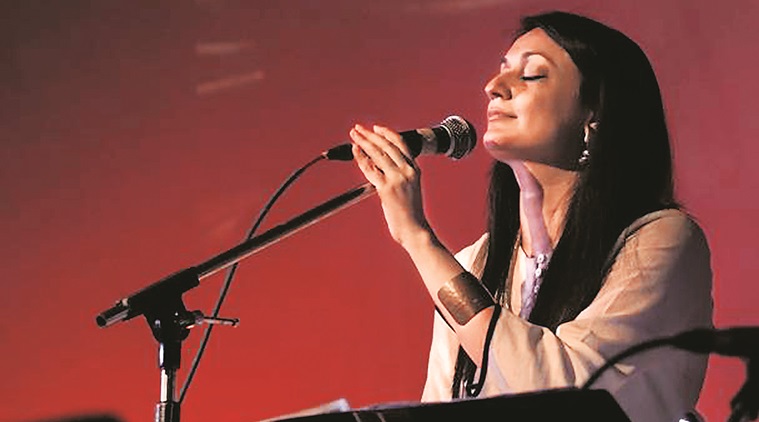 Sonam Kalra
Sonam Kalra
Tum aao gulshan-e-Lahore se
chaman bardosh,
Hum aayein subah-e-Banaras ki
roshni lekar,
Himalay ki hawaon ki taazgi lekar,
aur iske baad yeh poochhein ki kaun dushman hai
(Come to me from the garden of Lahore, laden with fragrant flowers,
and I will come to you bearing the beautiful light of a Benares morning,
and as we take in the fresh breeze of the Himalayas,
together we can ask, who is the enemy?)
Sonam Kalra’s music group, The Sufi Gospel Project, has just finished a performance at a university in Haryana. Kalra sounds out of breath, but is full of zest, and recites this Ali Sardar Jafri verse as a teaser to “Partition: Stories of Separation”, a multidisciplinary, experiential performance she’s curated. It blends music, theatre, video and art installations to tell stories of 1947.
At the 2011 World Cup India-Pakistan cricket semi-final in Mohali, when the Wagah border gates were thrown open, Kalra saw a man with his daughter on his back, holding a placard with Punjabi poet Ustad Daman’s words written on it: Laali akhiyaan di dasdi hai/ Roye assi vi, roye tussi vi (The redness in our eyes shows that you have cried and so have we). Kalra choked. She knew she had to express her feelings through art, thus birthing the idea for “Partition”, but she would only start work on it in 2015.
Kalra’s mother’s family came from Rawalpindi and father’s, from Sargodha, now in Pakistan. The granddaughter of Lt Gen JS Aurora — who oversaw the surrender of 90,000-plus Pakistani soldiers during the 1971 Bangladesh Liberation War — hasn’t heard sad stories in her family, except where her grandmother’s younger sister relayed how her father said he would have to kill them to save their honour if a mob attacked. It has mostly been anecdotes like the one about her grandmother going to college in a personal tonga.
Yet, she cried the first time she crossed the border, a foot on each side. It was “an intuitive reaction or a response from her DNA memory.” In Lahore, at a friend’s home, the housekeeper touched Kalra’s face affectionately, saying she was happy to meet an Indian. Another time, a shopkeeper threw a pair of jootis in her bag as a gift.
Starting in 2016, “Partition” has travelled from Delhi to Mumbai, Jaipur, Chandigarh and excerpts of it were performed in Dubai, Muscat and London. In Jaipur, after the show, a man walked up to her and said his grandfather was the engine driver of the last train that came from Pakistan bearing bodies.
Kalra has composed Punjabi, Urdu and Persian songs, for “Partition”, from the poems of that era by Jafri, Daman, Faiz Ahmad Faiz, Amrita Pritam and writer Saadat Hasan Manto — which she will sing along with Ahsan Ali. The other features are theatre actor Salima Raza, who will enact and recite stories of separation, contemporary poet Deepak Ramola, Gopika Chowfla’s art installations, and video testimonials from the non-profit, The 1947 Partition Archive. “There was a ‘repeat motif’ in all the stories: ‘we never thought we wouldn’t go back’,” says Kalra.
After the show, the audience is given a postcard, with “When we meet…” written on it. They have to fill it and drop in the red post box stationed outside the auditorium, “thereby physically performing the act of reaching out.” She has collected 6,000 Postcards of Peace. “I want people to pause and think of what it really means to become a refugee, to be uprooted and no longer belong. And how traumatic that is. We were family once, I hope that we can be friends,” Kalra says.